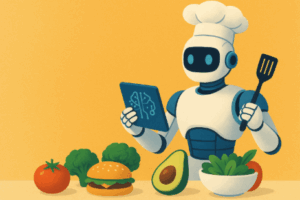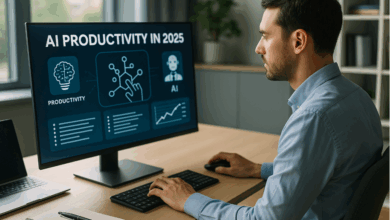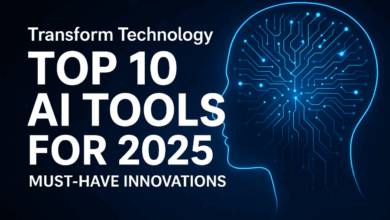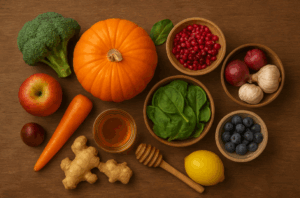The AI Food Revolution: How Artificial Intelligence Is Transforming What We Eat
The Impact of AI on Food Production and Agriculture
The world of food production and agriculture is constantly evolving, and one of the most significant changes in recent years has been the integration of artificial intelligence (AI). This technology has revolutionized the way we grow, harvest, and distribute food, leading to increased efficiency, sustainability, and even new culinary experiences. In this article, we will explore the impact of AI on food production and agriculture, and how it is transforming what we eat.
One of the main ways AI is transforming food production is through precision agriculture. This involves using sensors, drones, and other advanced technologies to collect data on soil conditions, weather patterns, and crop health. This data is then analyzed by AI algorithms to make informed decisions about irrigation, fertilization, and pest control. By using AI, farmers can optimize their resources and reduce waste, resulting in higher yields and better quality crops.

In addition to precision agriculture, AI is also being used to develop new plant varieties. Traditional breeding methods can take years to produce a new crop, but with AI, this process can be significantly accelerated. By analyzing genetic data, AI algorithms can identify desirable traits and create new plant varieties that are more resistant to diseases, pests, and environmental stressors. This not only benefits farmers but also consumers, as it leads to more nutritious and flavorful produce.
Another area where AI is making a significant impact is in food processing and packaging. With the help of AI, food manufacturers can automate processes, reduce waste, and improve food safety. For example, AI-powered robots can accurately sort and package fruits and vegetables, reducing the risk of contamination and ensuring consistent quality. AI can also be used to monitor food production lines and detect any potential issues, preventing food recalls and ensuring that only safe and high-quality products reach consumers.
The use of AI in food production is not limited to crops and fruits. It is also being utilized in animal agriculture. By analyzing data on animal behavior, health, and nutrition, AI can help farmers make informed decisions about feeding, breeding, and disease prevention. This leads to healthier and more productive livestock, which ultimately benefits both farmers and consumers.
Apart from improving efficiency and productivity, AI is also playing a crucial role in promoting sustainability in food production. By optimizing resources and reducing waste, AI can help reduce the environmental impact of agriculture. For example, precision agriculture techniques can reduce water usage and fertilizer runoff, leading to healthier soil and water systems. AI can also help identify areas where crops are at risk of disease or pests, allowing for targeted interventions instead of blanket treatments, which can harm beneficial insects and pollinators.
The impact of AI on food production and agriculture is not limited to the farming sector. It is also transforming the way we shop for and consume food. With the rise of e-commerce and online grocery shopping, AI is being used to personalize food recommendations and predict consumer demand. This not only makes it easier for consumers to find the products they want but also reduces food waste by ensuring that only the necessary amount of food is produced and distributed.
In conclusion, the integration of AI in food production and agriculture is revolutionizing the way we grow, harvest, and consume food. From precision agriculture and new plant varieties to food processing and sustainability, AI is making a significant impact on the entire food supply chain. As this technology continues to advance, we can expect to see even more exciting developments in the world of food, leading to a more efficient, sustainable, and delicious future.
How AI is Revolutionizing the Restaurant Industry
The restaurant industry has always been known for its constant evolution and innovation. From new cooking techniques to unique flavor combinations, chefs and restaurateurs are always looking for ways to stand out and provide a memorable dining experience for their customers. However, in recent years, a new player has entered the game and is transforming the way we think about food – artificial intelligence (AI).
AI technology has been making waves in various industries, and the restaurant industry is no exception. With its ability to analyze data, make predictions, and learn from patterns, AI is revolutionizing the way restaurants operate, from the kitchen to the front of house.
One of the most significant ways AI is transforming the restaurant industry is through personalized menus. With the help of AI algorithms, restaurants can now analyze customer data, such as past orders and preferences, to create personalized menus for each individual. This not only enhances the dining experience for customers but also increases the chances of them returning to the restaurant.
Moreover, AI is also being used to optimize menu design. By analyzing data on which dishes are most popular and profitable, AI can suggest changes to the menu layout, such as placing high-margin items in prominent positions. This not only helps restaurants increase their profits but also improves the overall flow of the menu for customers.
In the kitchen, AI is being used to streamline and improve the cooking process. With the help of AI-powered robots, restaurants can now automate repetitive tasks, such as chopping vegetables or flipping burgers. This not only saves time and labor costs but also ensures consistency in the quality of food.
Additionally, AI is also being used to improve food safety and reduce food waste. By analyzing data on food consumption and expiration dates, AI can predict when certain ingredients will run out and alert restaurants to order more. This helps reduce food waste and ensures that restaurants always have the necessary ingredients on hand.
In the front of house, AI is transforming the way restaurants interact with their customers. Chatbots, powered by AI, are being used to handle customer inquiries and reservations, freeing up staff to focus on other tasks. These chatbots can also make personalized recommendations based on customer preferences, making the dining experience more convenient and enjoyable.
Moreover, AI is also being used to improve the efficiency of the ordering process. With the help of AI-powered kiosks, customers can now place their orders and pay without having to wait for a server. This not only reduces wait times but also minimizes the chances of human error in taking orders.
Another significant way AI is revolutionizing the restaurant industry is through data analysis. By analyzing customer data, AI can provide valuable insights into customer behavior, preferences, and trends. This information can then be used to make informed decisions on menu changes, marketing strategies, and more.
Furthermore, AI is also being used to enhance the overall dining experience. With the help of AI-powered virtual assistants, restaurants can now offer customers a more interactive and personalized experience. These virtual assistants can provide information on the menu, make recommendations, and even engage in small talk with customers, making them feel more connected to the restaurant.
In conclusion, AI is transforming the restaurant industry in various ways, from personalized menus to improved efficiency and data analysis. As technology continues to advance, we can expect to see even more innovative uses of AI in the food industry. While some may argue that AI takes away from the human touch in the dining experience, it is undeniable that it has brought about significant improvements and advancements in the restaurant industry. The AI food revolution is here, and it is changing the way we eat.
The Future of Personalized Nutrition with Artificial Intelligence
The food industry has always been at the forefront of innovation, constantly seeking ways to improve the quality and efficiency of food production. In recent years, there has been a significant shift towards personalized nutrition, with consumers becoming more conscious about what they eat and how it affects their health. This has led to the rise of artificial intelligence (AI) in the food industry, with the potential to revolutionize the way we eat.
AI is a branch of computer science that focuses on creating intelligent machines that can perform tasks that typically require human intelligence. In the food industry, AI is being used to analyze vast amounts of data and provide personalized recommendations for individuals based on their unique dietary needs and preferences. This has the potential to transform the way we approach nutrition, making it more tailored and effective.
One of the main ways AI is being used in personalized nutrition is through the development of smart apps and devices. These apps and devices use AI algorithms to analyze data such as food intake, exercise, and health metrics to provide personalized recommendations for users. For example, a user can input their dietary preferences, allergies, and health goals into an app, and the AI algorithm will generate a personalized meal plan and grocery list. This not only saves time and effort for the user but also ensures that they are consuming a balanced and healthy diet.
Another way AI is transforming personalized nutrition is through the use of genetic testing. By analyzing an individual’s DNA, AI can identify genetic predispositions to certain health conditions and provide personalized dietary recommendations to prevent or manage these conditions. This approach takes into account an individual’s unique genetic makeup, making it more accurate and effective than a one-size-fits-all approach to nutrition.
AI is also being used to improve food production and supply chain management. With the world’s population expected to reach 9.7 billion by 2050, there is a growing need for sustainable and efficient food production. AI can analyze data from various sources such as weather patterns, soil conditions, and crop yields to optimize farming practices and increase food production. This not only ensures a steady food supply but also reduces waste and environmental impact.
In addition to personalized nutrition, AI is also being used to develop new food products. By analyzing consumer data and trends, AI can identify gaps in the market and create innovative food products that cater to specific dietary needs and preferences. This has led to the development of plant-based alternatives, personalized supplements, and functional foods that offer health benefits beyond basic nutrition.
However, with the rise of AI in the food industry, there are also concerns about its potential impact on human jobs. As AI becomes more advanced, there is a fear that it may replace human workers in areas such as food production and supply chain management. While this is a valid concern, it is important to note that AI is not meant to replace humans but rather to enhance their capabilities. By automating repetitive tasks and providing data-driven insights, AI can free up human workers to focus on more complex and creative tasks.
In conclusion, the future of personalized nutrition with AI is promising. With the ability to analyze vast amounts of data and provide tailored recommendations, AI has the potential to transform the way we approach nutrition. From personalized meal plans to sustainable food production, AI is revolutionizing the food industry and paving the way for a healthier and more sustainable future. However, it is important to ensure that AI is used ethically and responsibly to reap its full benefits and minimize any potential negative impacts.



